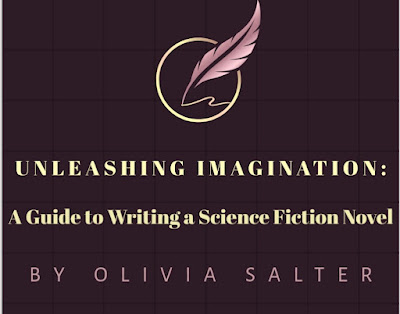by Olivia Salter
Science fiction is a captivating genre that allows writers to explore the realms of scientific advancements, futuristic technology, extraterrestrial life, and alternate realities. Crafting a compelling science fiction novel requires a delicate balance of scientific concepts, imaginative storytelling, and thought-provoking themes. In this article, we will outline the key elements and steps to creating a captivating science fiction masterpiece.
In conclusion, writing a science fiction novel is an exhilarating journey that requires a blend of creativity, scientific knowledge, and narrative expertise. By developing unique ideas, building immersive worlds, crafting compelling characters, and integrating scientific accuracy, you can embark on a literary adventure that captivates readers and sparks their imagination. So let your ideas soar and explore the endless possibilities of science fiction storytelling.
1. Develop unique and engaging ideas:
Science fiction thrives on innovative ideas and concepts that challenge the boundaries of human imagination. Take time to brainstorm a variety of ideas, drawing inspiration from current scientific advancements, societal issues, or philosophical questions. Look for the untapped potential of futuristic societies in technology, space exploration, artificial intelligence, time travel, genetic engineering, or any other scientific concept that intrigues you.2. Worldbuilding and Setting:
Crafting a believable and immersive world is crucial in science fiction literature. Consider the time, location, technology, and societal structure of your story. Think beyond Earth and explore new planets, alternate universes, or dystopian societies. Pay attention to both macro and micro details, including geography, history, culture, and how society functions within the given setting.3. Compelling Characters:
Develop well-rounded and relatable characters that connect with readers on an emotional level. Create strong protagonists who navigate through complex challenges posed by technological, political, or extraterrestrial encounters. Additionally, construct compelling antagonists with motivations that go beyond mere villainy. Explore character arcs and allow them to evolve in response to the conflicts and discoveries they encounter.4. Plot and Conflict:
A gripping science fiction novel centers around captivating plots and conflicts that keep readers hooked. Decide on the main conflict that drives the story forward. It could involve scientific discoveries, species encounters with artificial intelligence, rebellions, or social revolutions. Structure your plot with twists, turns, and moments of suspense to maintain intrigue and momentum.5. Scientific Accuracy and Plausibility:
Even though science fiction operates on imagination, incorporating scientific accuracy and plausibility is vital to maintaining reader engagement. While you can take creative liberties, ground your story in sound scientific principles to ensure that it remains believable and coherent within its established world. Extensive research will help you achieve this balance.6. Theme and Message:
Science fiction often tackles complex social, ethical, and philosophical themes, serving as a mirror to our own world. Decide on the underlying themes and messages you wish to convey through your story. Explore topics such as the implications of advanced technology, mankind's relationship with the environment, the consequences of scientific innovations, or the exploration of morality and humanity in the face of extraordinary circumstances.7. Action, Emotion, and Conclusion:
Science fiction novels often combine thrilling action sequences with deep emotional connections. Craft intense and vivid scenes that immerse readers in the story. Balance action with introspection, allowing characters to grapple with the consequences of their choices. Ensure a satisfying conclusion that ties up loose ends while leaving room for imagination and possibilities.In conclusion, writing a science fiction novel is an exhilarating journey that requires a blend of creativity, scientific knowledge, and narrative expertise. By developing unique ideas, building immersive worlds, crafting compelling characters, and integrating scientific accuracy, you can embark on a literary adventure that captivates readers and sparks their imagination. So let your ideas soar and explore the endless possibilities of science fiction storytelling.


No comments:
Post a Comment